Battlelines being drawn, a wounded PM went early to bed and woke up too late to stop the bleeding
WHEN the leadership crisis hit fever-pitch on Monday evening and it became clear a challenge was looming, the Prime Minister retired to bed at 9.30pm. By yesterday morning, he formed the view he needed to bring the issue to a head. Immediately.
News
Don't miss out on the headlines from News. Followed categories will be added to My News.
WHEN the leadership crisis hit fever-pitch on Monday evening, and it became clear a challenge was looming, the Prime Minister retired to the Lodge early.
He was in bed by 9.30pm, and while he had made calls earlier to shore up his support, he did not stay up all night working the phones ringing dozens of colleagues.
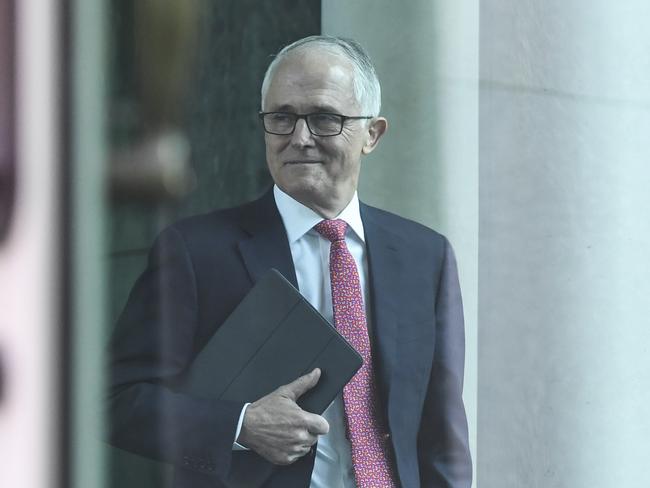
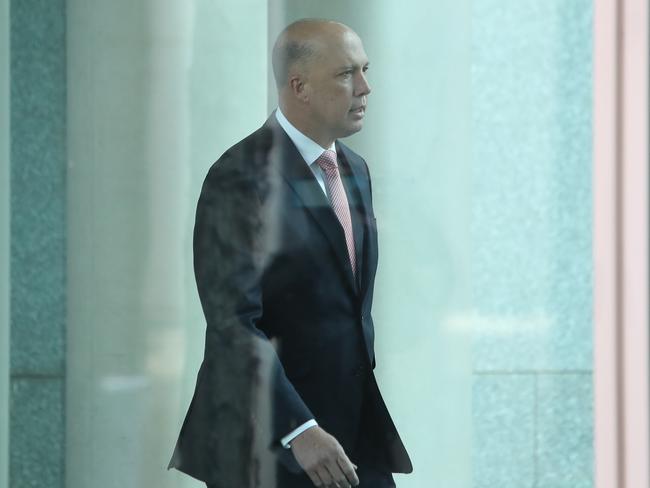
Malcolm Turnbull was despondent. A colleague he had always got along well with, who he had promoted into the prestige new portfolio of Home Affairs — which caused him a headache with his moderate faction — was actively working to overthrow him.
DUTTON’S SECOND TILT AT PM AS VOTES REVEALED
RESHUFFLE LOOMS AFTER MINISTERS REVOLT
By the morning, he formed the view he needed to bring the leadership issue to a head. Immediately.
Acting on the assumption Peter Dutton did not have the numbers to topple him, and knowing his government was crippled while he waited for Mr Dutton’s supporters to decide the best time to challenge, he decided to call a spill.
The PM told only a small circle that included Julie Bishop and did not give Mr Dutton a heads-up prior to the party room gathering, despite a leadership meeting at 8.30am. It had been something conservative faction leaders had anticipated as a possibility.
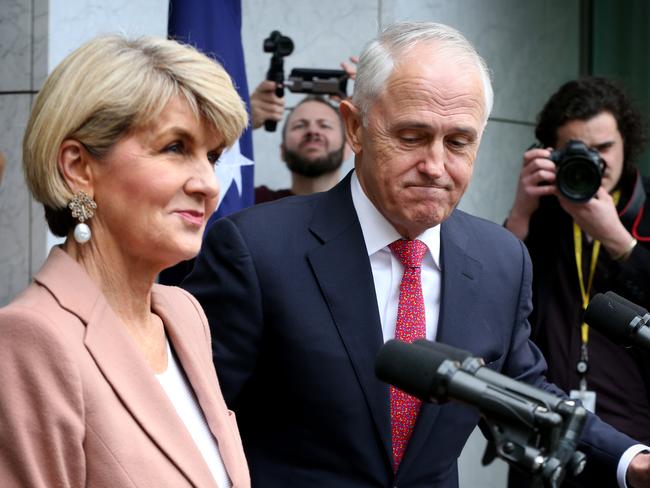
For days Mr Turnbull had been under the misapprehension that Mr Dutton did not want his job, and was being forced into a challenge by conservatives inside and outside Parliament.
On Friday morning, despite a front-page story in The Daily Telegraph revealing conservatives were urging Mr Dutton to seize the leadership within weeks, Mr Turnbull thought the situation was salvageable and was predominantly about his energy policy.
This explains his move to dump the Paris emissions target from the National Energy Guarantee.
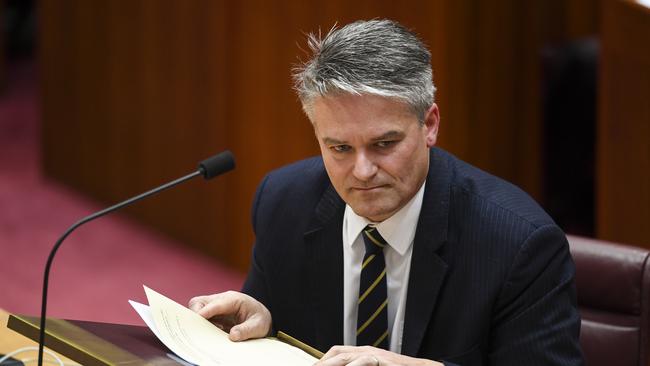
In a private phone call, Mr Dutton told the PM directly that he did not want his job — while carefully declining to categorically rule out a challenge.
Mr Turnbull believed this.
Mathias Cormann was instrumental in negotiating for Mr Dutton to send a tweet on Saturday morning stating his support for the Prime Minister.
But, when Parliament returned on Monday, and the Dutton camp worked the phones, offering jobs to influential MPs and faction leaders, the gravity of the situation dawned on Mr Turnbull.
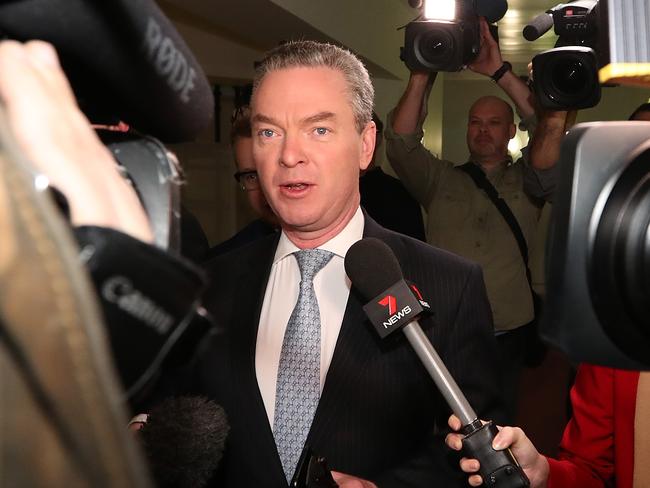
While Christopher Pyne had canvassed numbers over the weekend. by midday Monday the Turnbull team were thrown into action to try to secure his leadership.
Late into the night, there were rival groups at Parliament House frantically trying to win over Liberal MPs.
Currently, Mr Turnbull still maintains the support of the vast majority of cabinet, with the exception of only Dutton, Michael Keenan, Greg Hunt and Steve Ciobo. It’s the backbench where support is crumbling.
Mr Dutton’s team sees his 42 per cent support as something solid to build on. The PM is aware this challenge is the beginning.
It is a matter of time, possibly just hours, before his former cabinet colleague strikes again.
